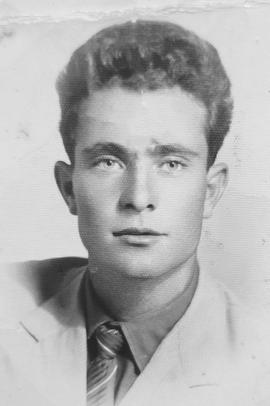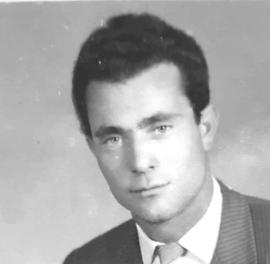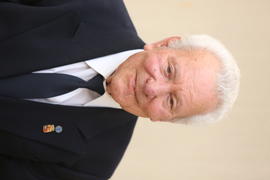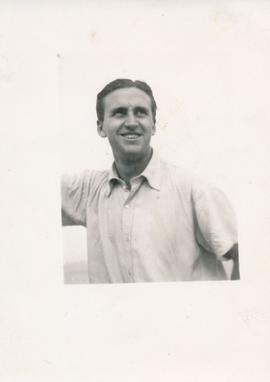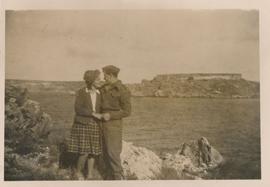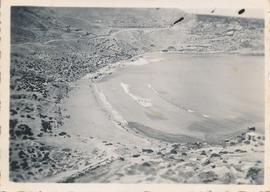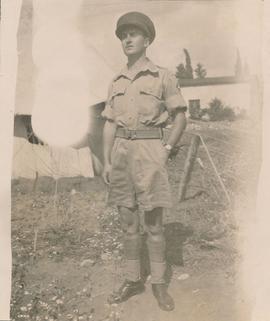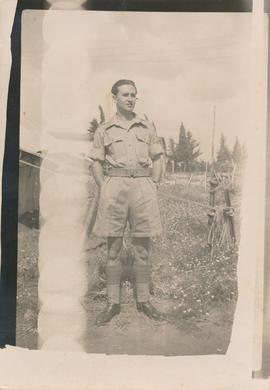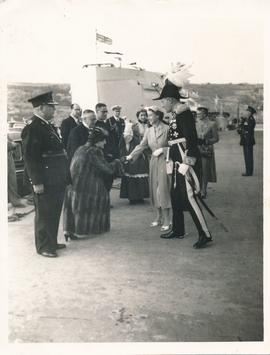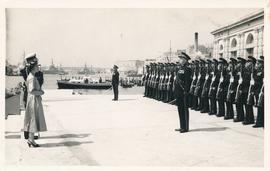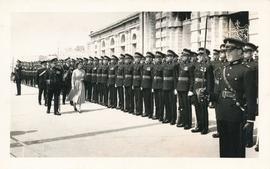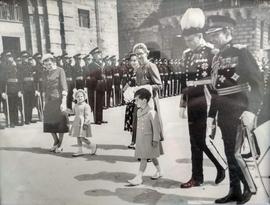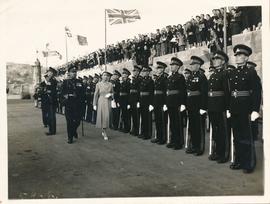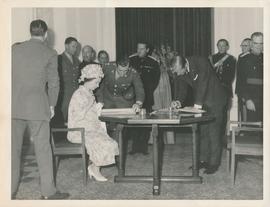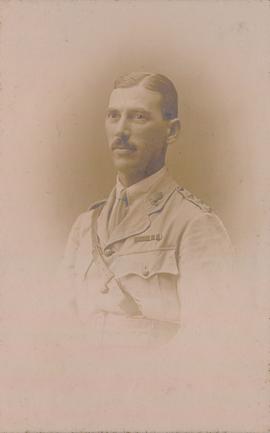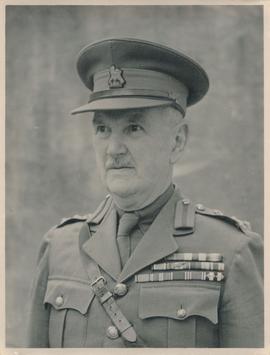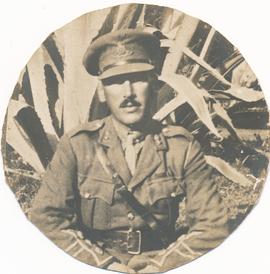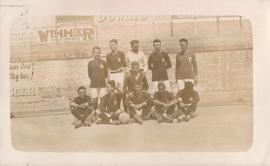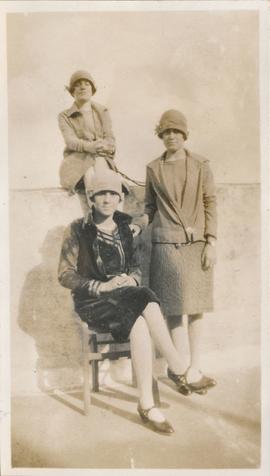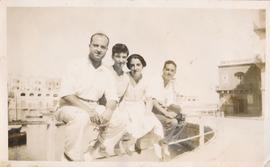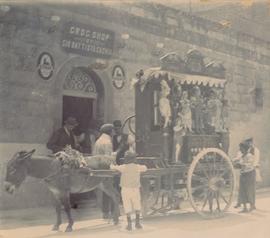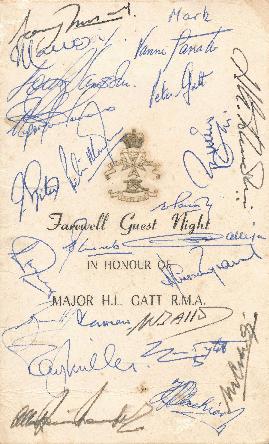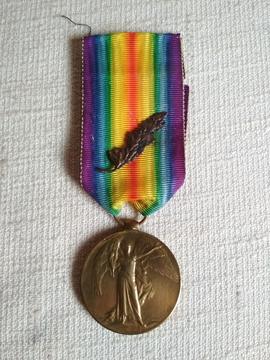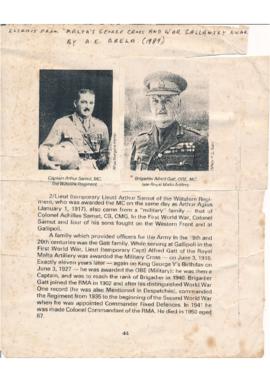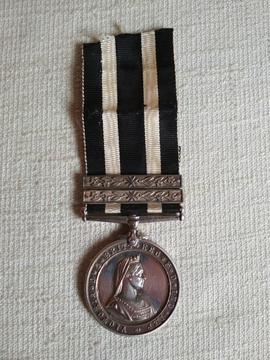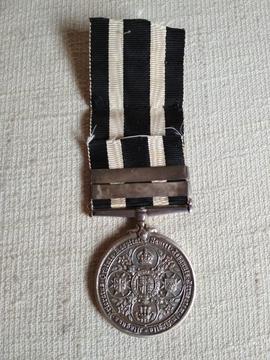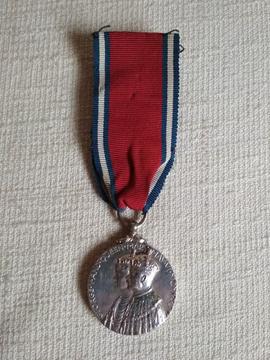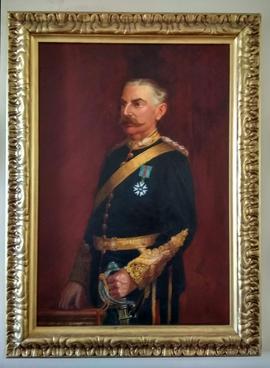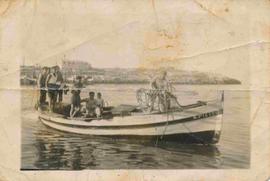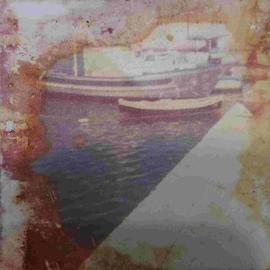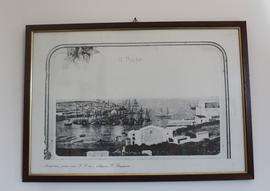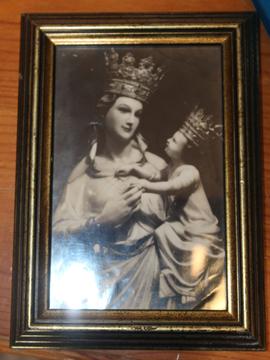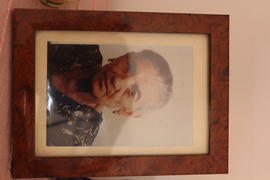Part of Memorja
Showing 381 results
Archival descriptionPart of Memorja
Part of Memorja
- MT NAM MEM-0049GM-02-05
- Item
- 1950s
Part of Memorja
- MT NAM MEM-0049GM-02-06
- Item
- n/a
Part of Memorja
- MT NAM MEM-0049GM-02-10
- Item
- n/a
Part of Memorja
Part of Memorja
Part of Memorja
Major Henry Louis Gatt_part01_08.02.2018
- MT NAM MEM-0007HLG-01-01-01
- Item
- 08/02/2018
Part of Memorja
In the first part of the interview, Henry Louis Gatt spoke about conscription into the Royal Malta Artillery (R.M.A.), his family's evacuation to Rabat, air raids, shelters and his father, Brigadier Alfred J. Gatt.
Major Henry Louis Gatt_part03_08.02.2018
- MT NAM MEM-0007HLG-01-01-03
- Item
- 08/02/2018
Part of Memorja
In the third part of the interview, Henry Louis Gatt talked about his post-War military career. He had listed his overseas postings and explained in detail the operations he had to go on when he was stationed in Palestine. He mentioned the Jewish terrorist groups, the King David Hotel bombing, the rundown of the British services in Malta and the final British withdrawal in 1979.
Major Henry Louis Gatt_1_15.03.2018
- MT NAM MEM-0007HLG-01-03-01
- Item
- 15/03/2019
Part of Memorja
Major Henry Gatt's (retd.) father was the late Brigadier Alfred Joseph Gatt and during the interview Henry talked about his father's military service in Gallipoli during the First World War.
- MT NAM MEM-0007HLG-02-01
- Item
- 08/02/2018
Part of Memorja
- MT NAM MEM-0007HLG-02-03
- Item
- n/a
Part of Memorja
Maria Therese and Henry Louis Gatt during their honeymoon
- MT NAM MEM-0007HLG-02-12
- Item
- June 1947
Part of Memorja
Maria Therese Gatt née Frendo Randon and Henry Louis Gatt while on their honeymoon. The promontory in the background is 'Ras Il-Qarraba.'
- MT NAM MEM-0007HLG-02-14
- Item
- June 1947
Part of Memorja
Henry Louis Gatt on an encampment during his posting in Palestine
- MT NAM MEM-0007HLG-02-22
- Item
- 1946-1948
Part of Memorja
Henry Louis Gatt on an encampment during his posting in Palestine
- MT NAM MEM-0007HLG-02-23
- Item
- 1946-1948
Part of Memorja
- MT NAM MEM-0007HLG-02-24
- Item
- 03-05-1954
Part of Memorja
Governor of Malta Sir Gerald Creasy is to the left of Elizabeth II with hand on ceremonial sword.
Visit of Queen Elizabeth II - inspection of guard of honour
- MT NAM MEM-0007HLG-02-26
- Item
- 03-05-1954
Part of Memorja
Henry Louis Gatt is first from right standing at attention with ceremonial sword.
Visit of Queen Elizabeth II - inspection of guard of honour
- MT NAM MEM-0007HLG-02-28
- Item
- 03-05-1954
Part of Memorja
Henry Louis Gatt is on the far left standing at attention with ceremonial sword.
- MT NAM MEM-0007HLG-02-25
- Item
- 03-05-1954
Part of Memorja
Henry Louis Gatt is standing at attention with ceremonial sword. A young Prince Charles is at the centre with light-coloured coat and white shoes.
Visit of Queen Elizabeth II - inspection of guard of honour
- MT NAM MEM-0007HLG-02-30
- Item
- 07-05-1954
Part of Memorja
Henry Louis Gatt (second from left) is standing at attention with ceremonial sword.
- MT NAM MEM-0007HLG-02-38
- Item
- 20-12-1967
Part of Memorja
(From left) Major Henry Louis Gatt (with back to camera), Lieutenant Colonel Edward 'Eddie' Gatt, Queen Elizabeth II, Lieutenant Colonel J. Cremona (with moustache), Prime Minister George Borg Olivier, an unidentified army officer, Lieutenant Colonel Edward Von Brockdorff, Archbishop Sir Michael Gonzi (partly hidden), Prince Philip, Duke of Edinburgh, an unidentified army officer (Aide-de-Camp), an unidentified civil servant and Colonel George V. Micallef.
- MT NAM MEM-0007HLG-02-44
- Item
- 1914-1919
Part of Memorja
William Gatt was Alfred Joseph Gatt's brother and Henry Louis Gatt's uncle
- MT NAM MEM-0007HLG-02-50
- Item
- 1940-1945
Part of Memorja
- MT NAM MEM-0007HLG-02-48
- Item
- n/a
Part of Memorja
A group of footballers posing for a photograph
- MT NAM MEM-0007HLG-02-56
- Item
- 1920s-1930s
Part of Memorja
Three young women posing for a photograph
- MT NAM MEM-0007HLG-02-59
- Item
- 1920s-1930s
Part of Memorja
Four people posing for a photograph at Spinola Bay
- MT NAM MEM-0007HLG-02-60
- Item
- 1920s-1930s
Part of Memorja
A terramaxka in front of a grog shop
- MT NAM MEM-0007HLG-02-68
- Item
- n/a
Part of Memorja
Programme for farewell guest night in honour of Henry Louis Gatt
- MT NAM MEM-0007HLG-03-10
- Item
- 1970
Part of Memorja
Obverse of Victory Medal with Mention in Despatches emblem awarded to Anthony Joseph Gatt
- MT NAM MEM-0007HLG-03-15
- Item
- 1919
Part of Memorja
Extract about the military career of Alfred Joseph Gatt
- MT NAM MEM-0007HLG-03-21
- Item
- 1989
Part of Memorja
Extract from 'Malta's George Cross and War Gallantry Awards' by A. E. Abela (1989).
Obverse of Service Medal of the Order of St John, awarded to Anthony Joseph Gatt
- MT NAM MEM-0007HLG-03-18
- Item
- n/a
Part of Memorja
Reverse of Service Medal of the Order of St John, awarded to Anthony Joseph Gatt
- MT NAM MEM-0007HLG-03-18B
- Item
- n/a
Part of Memorja
Obverse of King George V Silver Jubilee Medal awarded to Anthony Joseph Gatt
- MT NAM MEM-0007HLG-03-19
- Item
- 1935
Part of Memorja
- MT NAM MEM-0007HLG-03-06
- Item
- n/a
Part of Memorja
William Gatt was the brother of Brigadier Alfred J. Gatt and the uncle of Henry Louis Gatt. According to Henry, William had died after he had been thrown from a horse during a military parade in Valletta.
- MT NAM MEM-0008LM-01-01
- File
- 16/10/2017
Part of Memorja
Dates covered: 1931-1945. Laurence Mizzi spoke about the Italian declaration of war and the subsequent bombardments which had forced his family's relocation to Gudja as refugees. Laurence remembered the way of life in the rural areas, the disparity between the city dwellers and the villagers, the new living conditions which the former had to get accustomed to, the air raids, the black market, Victory Kitchen songs, the convoys and his take on the Maltese-born Italy-serving spy Carmelo Borg Pisani.
Laurence Mizzi_part01_16.07.2017
- MT NAM MEM-0008LM-01-01-01
- Item
- 16/10/2017
Part of Memorja
In the first part of the interview, Laurence had spoken about the Italian declaration of war and his family's immediate relocation to Gudja. He remembered the refugees trickling out of the inner harbour area with the hope of being given shelter in the villages. He then spoke about how these refugees had to adapt to new living conditions in the rural areas and the cultural differences these people had experienced as opposed to city life.
Laurence Mizzi_part02_16.07.2017
- MT NAM MEM-0008LM-01-01-02
- Item
- 16/10/2017
Part of Memorja
In the second part of the interview, Laurence Mizzi further explained the living conditions in Gudja and the cultural gulf between the Cottonera residents and the rural dwellers. He went on to recount the arrival of the German Air Force, the H.M.S. Illustrious air raid, contact with British servicemen, the underground shelters and the Victory Kitchens.
Ettore Raffi_part03_25.09.2017
- MT NAM MEM-0001ER-01-01-03
- Item
- 25/09/2017
Part of Memorja
In the last part of the interview Ettore Raffi described two pleasant experiences which happened during his life at sea.
Part of Memorja
Part of Memorja
Part of Memorja
Part of Memorja
Part of Memorja
Part of Memorja
Part of Memorja
Part of Memorja
Part of Memorja
Part of Memorja
Part of Memorja
Part of Memorja
Part of Memorja
Part of Memorja
Part of Memorja
Part of Memorja
Part of Memorja
Part of Memorja
Salvatore Davì and other fishermen on a Stella di Mare boat
- MT NAM MEM-0003SD-02-01
- Item
- 20/08/1954
Part of Memorja
Salvatore Davì's boat in harbour
- MT NAM MEM-0003SD-02-05
- Item
- n/a
Part of Memorja
Mikelina Vella_part01_27.06.2017
- MT NAM MEM-0012MV-01-01-01
- Item
- 27/06/2017
Part of Memorja
In the first part of the interview, Mikelina Vella started by talking about her childhood. She recalled the declaration of war, life in the shelters, the air raids and the refugees which had sought shelter in Mosta.
- MT NAM MEM-0002GF-02-01
- Item
- 1900
Part of Memorja
Framed photograph of Our Lady of Trapani
- MT NAM MEM-0002GF-02-04
- Item
- n/a
Part of Memorja
The framed photograph represents Our Lady of Trapani. This image is related to the interview from 01:39:00 until 01:40:00, wherein the interviewee spoke about the relationship between Our Lady of Trapani and Our Lady of Lampedusa.
- MT NAM MEM-0002GF-02-09
- Item
- n/a
Part of Memorja
- MT NAM MEM-0001ER-01-01
- File
- 25/09/2017
Part of Memorja
In the interview, Ettore Raffi spoke about his experiences of life at sea and his voyages to Tunisia, Panama, Mississippi and the Mediterranean. He travelled to Malta three times during different periods. He shared memories regarding trade between Lampedusan fishermen and sailors and the Maltese. The Lampedusans used to consider Malta as a rich island because of the availability of tobacco, sugar, chocolate and bars of soap. He recalled relations between Maltese, Italian and British sailors, as well as the nightlife in Valletta, particularly related to Strait Street, and Maltese women. Ettore Raffi gave us his opinion about Maltese culture, the period between 1964-1979, the Dom Mintoff government and the changes after Independence.
Ettore Raffi_part01_25.09.2017
- MT NAM MEM-0001ER-01-01-01
- Item
- 25/09/2017
Part of Memorja
In this part of the interview Ettore Raffi spoke about his travels as a sailor in different parts of the world: Tunisia, Panama, Mississippi and the Mediterranean.
Ettore Raffi_part02_25.09.2017
- MT NAM MEM-0001ER-01-01-02
- Item
- 25/09/2017
Part of Memorja
In the interview Ettore Raffi shared memories regarding trade between Lampedusan fishermen, sailors and the Maltese. The Lampedusans used to consider Malta as a rich island because of the availability of tobacco, sugar, chocolate and bars of soap. He recalled relations between Maltese, Italian and British sailors, as well as the nightlife in Valletta, particularly related to Strait Street, and Maltese women. Ettore Raffi gave us his opinion about Maltese culture, the period between 1964-1979, the Dom Mintoff government and the changes after Independence.
Part of Memorja
Part of Memorja
Part of Memorja
Part of Memorja
Part of Memorja
Part of Memorja
